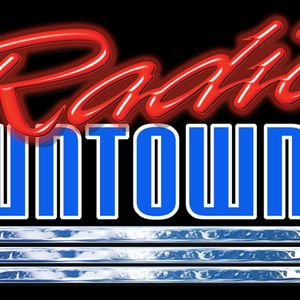Indie Artist on Tour
Navigating the Financial Terrain: A Guide for Indie Artists on Tour
Introduction:
Embarking on a tour as an indie artist is an exciting but challenging endeavor. While the thrill of performing live and connecting with fans is undeniable, the financial aspects of touring can be complex and demanding. In this article, we'll explore essential tips and strategies to help indie artists navigate the financial terrain of touring and live performances.
Budgeting and Planning:
a. Create a Realistic Budget:
Outline all potential expenses, including transportation, accommodation, meals, and equipment.
Consider unexpected costs and factor in a buffer for emergencies.
b. Tour Length:
Assess the ideal duration of your tour, balancing the number of performances with budget constraints.
Longer tours may require more financial planning and a sustainable budget.
c. Venue Selection:
Choose venues that align with your audience size to maximize revenue potential.
Negotiate favorable deals with venues, considering factors like ticket sales splits.
Revenue Streams:
a. Diversify Income Sources:
Explore various revenue streams, such as ticket sales, merchandise, and crowdfunding.
Utilize online platforms to sell merchandise before and after shows.
b. Merchandising:
Design and produce high-quality merchandise that reflects your brand.
Set reasonable prices to encourage sales without discouraging potential buyers.
c. Crowdfunding:
Consider crowdfunding campaigns to finance specific aspects of your tour, like travel expenses or new equipment.
Engage with your fan base and offer unique rewards to incentivize contributions.
Financial Management:
a. Separate Personal and Tour Finances:
Open a separate bank account for tour-related transactions to maintain financial clarity.
Use accounting tools or apps to track income and expenses.
b. Emergency Fund:
Set aside a portion of your budget as an emergency fund for unexpected costs.
Be disciplined about sticking to your budget to avoid depleting the emergency fund.
c. Insurance:
Consider insurance coverage for equipment, health, and liability to protect against unforeseen circumstances.
Negotiation Skills:
a. Contract Review:
Thoroughly review and understand contracts before committing to any performances.
Negotiate terms that are fair and beneficial to both parties.
b. Rider Agreement:
Clearly outline your needs in a rider agreement, addressing technical requirements, hospitality, and any additional requests.
Communicate these requirements in advance to avoid last-minute issues.
Post-Tour Evaluation:
a. Financial Assessment:
Conduct a detailed financial analysis post-tour to identify areas for improvement.
Evaluate which revenue streams were most successful and adjust your strategy accordingly.
b. Fan Engagement:
Capitalize on the momentum gained during the tour to strengthen your relationship with fans.
Encourage social media engagement and maintain communication to sustain interest.
Conclusion:
Successfully managing the financial aspects of touring as an indie artist requires a combination of careful planning, strategic thinking, and effective execution. By creating a realistic budget, diversifying income sources, practicing sound financial management, honing negotiation skills, and conducting post-tour evaluations, indie artists can not only survive the financial challenges of touring but also thrive in the dynamic world of live performances.
JohnK ~ Radiodowntown



